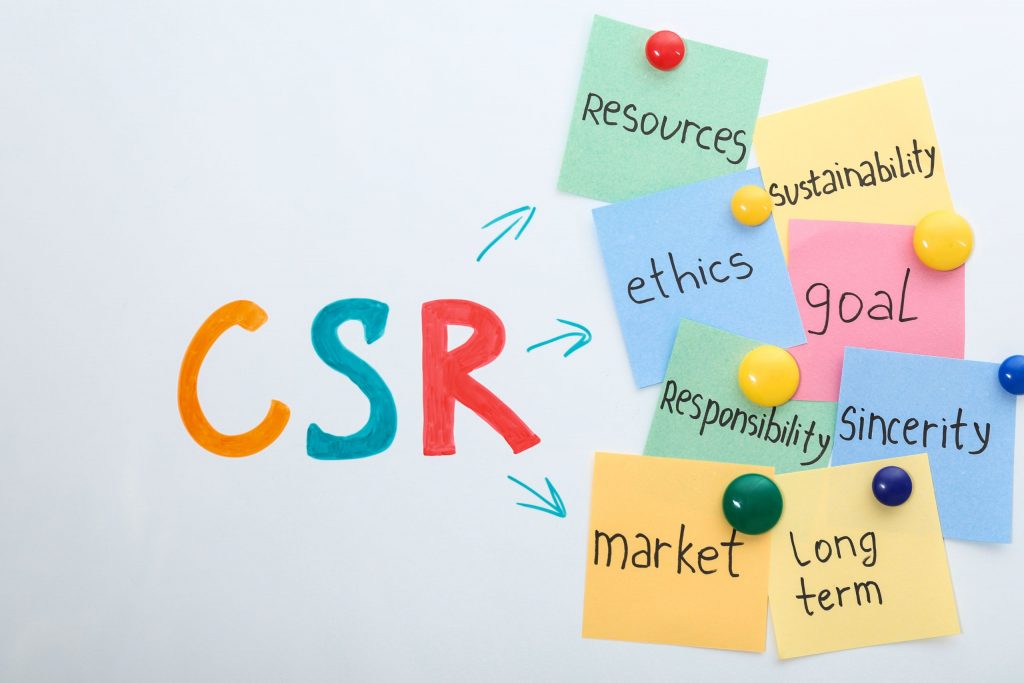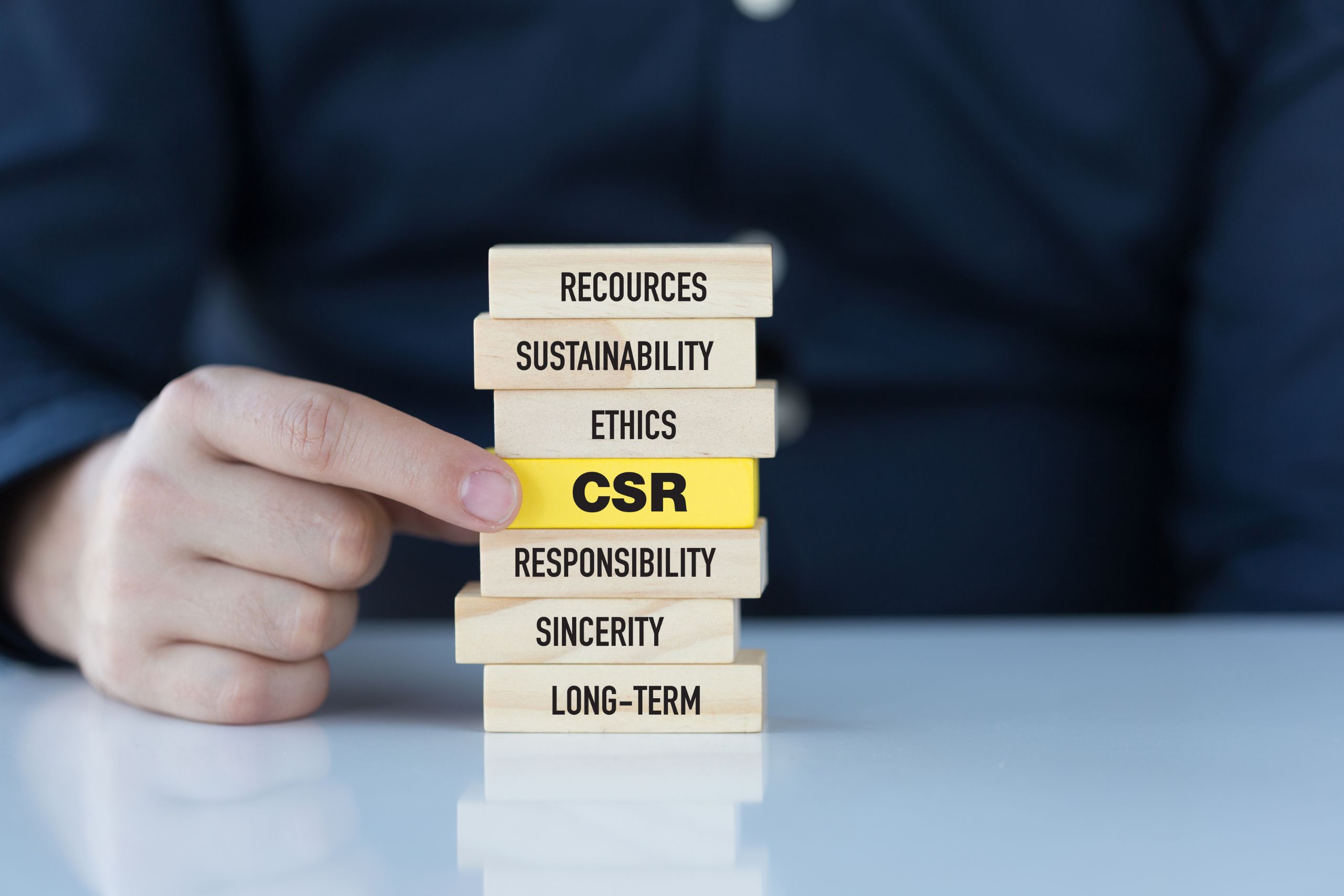Reflecting a company’s dedication to control its social and environmental effect, business social responsibility (CSR) is gradually gaining center stage in modern corporate strategy. Modern consumers are more ready to help companies showing moral behavior and environmental sustainability commitment. CSR improves a company’s reputation and builds brand loyalty because consumers interact with companies they share values. Furthermore, businesses which give CSR high priority usually have lower operating expenses, better financial performance, and happier staff. This change toward adding CSR into main company operations fits a larger trend wherein ethical and environmental problems define long-term profitability. CSR becomes more important as businesses negotiate urgent worldwide issues such climate change, inequality, and human rights as it not only helps businesses but also communities and the environment, therefore enabling a more sustainable future.
Defining Corporate Social Responsibility: More Than a Buzzword
Corporate social responsibility (CSR) is the long, hard look companies take at how they affect the environment and society. It’s about using moral corporate methods, starting environmental projects, and actively interacting with the community—not just about sending a cheque to a charity or putting a clever slogan on display. Companies committed to CSR seek to treat their employees well, ensure moral supply chains, and attempt to lower their environmental effect. A company may use ecologically friendly goods, support fair labor standards, or engage on community development projects if it wants to really make changes.
Still, it’s important to understand that none of CSR initiatives go exactly. Some businesses would depend more on CSR as a marketing strategy than on influence and give image more importance. Usually by means of ongoing communication with stakeholders to discover their concerns and objectives, real CSR is including ethical behavior into the central focus of a company’s operations. Companies like Patagonia and Unilever exemplify how real dedication to CSR can result in good changes for the earth as well as for their profit margin. Companies that really engage in their social and environmental obligations not only inspire customer trust and loyalty but also contribute to create a better planet for everybody.

The Business Case for CSR: Boosting Reputation and Performance
Mostly under effect of corporate social responsibility (CSR), customer confidence and brand image have altered. Companies engaged in CSR projects—that example, those helping local communities, implementing green regulations, or guaranteeing fair labor standards—show customers they value more than simply profit. Real customer service would lead to more intimate emotional ties. Strong CSR projects, for example, have been linked in studies to increased customer loyalty and preference, therefore enhancing their chance of preferring their goods over rivals. Well-known for their dedication to environmental issues, businesses like Patagonia have shown amazing consumer loyalty to show that moral behavior can result in brand strength.
Furthermore, CSR helps employees as well as consumers. Workers of today want to work for firms whose values match theirs. Companies that give CSR a priority frequently see better employee retention and involvement. Companies like Ben & Jerry, for instance, not only support social issues but also create an environment in which their staff members would find resonance. Reduced turnover rates and higher production may follow from this relationship. Companies that adopt CSR also often show more profitability than their rivals. Studies reveal that companies that practice social responsibility usually have better financial results as customers are ready to pay more for goods from brands they value. Adopting CSR is not just a moral decision but also a wise business tactic with clear results.
Environmental Sustainability: A Key Pillar of CSR
Usually attributed with corporate social responsibility (CSR), environmental programs allow companies to cut waste, decrease their carbon footprints, and replace energy sources. These initiatives not only show a company’s dedication to sustainability but also fit world challenges such as slowing down of climate change problems. Energy-efficient technology companies—such as LED lights or solar panels—for example are aggressively assisting the fight against climate change while also cutting operational costs. This two-edged advantage makes environmental initiatives a win-zag for the planet and the business as well.
Moreover, by putting these environmentally friendly policies into effect, companies might attract consumers that value the surroundings and want to help companies giving sustainability first priority. Particularly in terms of environmental preservation, customers of today are more and more looking for products and services from businesses they share ideals. This change in consumer behavior indicates that businesses implementing ethical environmental practices not only improve their image but also inspire loyalty among customers who value having a positive influence. Basically, including environmental responsibility into a company plan not only benefits the planet but also helps to attract and maintain a committed clientele.
Community Involvement: Developing Relationships
Corporate social responsibility (CSR) depends especially on returning to local communities—which could take many different forms including charity, volunteering, and partnerships. Companies engaged in these projects not only improve their brand but also develop close links with the nearby areas they support. Volunteering inspires pride and purpose by helping staff people to step away from their daily duties and assist local projects. Changing things makes employees happy; communities benefit from the resources and skills of these businesses—a win-win situation.
Local development projects and educational events are two outstanding ways to promote a good impact and goodwill. Companies provide educational programs or vocational training courses to help one get the skills needed for better job. This enhances the area as well as produces better workers, which might eventually benefit the business as whole. Working with non-profit organizations also guarantees that these programs are sustainable and targets people in need, therefore improving them. These acts taken together create a ripple effect that promotes community—qualities required for functioning civilizations—and shared responsibility.
The Role of CSR in Innovation and Long-Term Growth
Driving innovation by forcing companies to create sustainable goods and practices, Corporate Social Responsibility (CSR) is very important. Companies that commit to CSR may find themselves questioning their conventional methods and investigating fresh approaches of operation. For running its operations, a company could choose to use renewable energy sources or invest in ecologically friendly products. This development opens new commercial opportunities and helps the surrounds as well. Especially younger generations of customers nowadays are looking for brands that give sustainability first priority, so businesses that innovate in this field might draw a committed customer willing to support their projects.
Using business social responsibility also helps to foster long-term resilience by encouraging moral conduct. Companies that give social and environmental responsibility top importance will be better fitted to satisfy consumer expectations and market developments. When a business is proactive in reducing its environmental impact, for instance, it sets itself to more effectively respond to changes in public expectations and laws. Constant success depends largely on strong brand reputation and customer confidence this flexibility generates. CSR basically not only fosters innovation but also provides a strong foundation for companies to grow in the framework of constant change.

Conclusion
With great consequences for brand value, societal well-being, and environmental sustainability, corporate social responsibility (CSR) is fast turning into a transforming agent in contemporary business. Companies which commit to social responsibility not only improve their reputation but also build closer relationships with customers who give ethical issues top priority when making purchases. This congruence with customer values develops brand loyalty, raises staff morale, and draws talent looking for intentional work settings. Moreover, CSR projects solve important social problems by means of environmental care and community development, therefore fostering sustainability. Adopting CSR as a basic strategy can help companies establish trust, improve reputation, and open the path for long-term success in the socially concerned market of today as they realize the need of running morally and responsibly. Companies may flourish and significantly affect the environment and society while including CSR into their daily operations.





